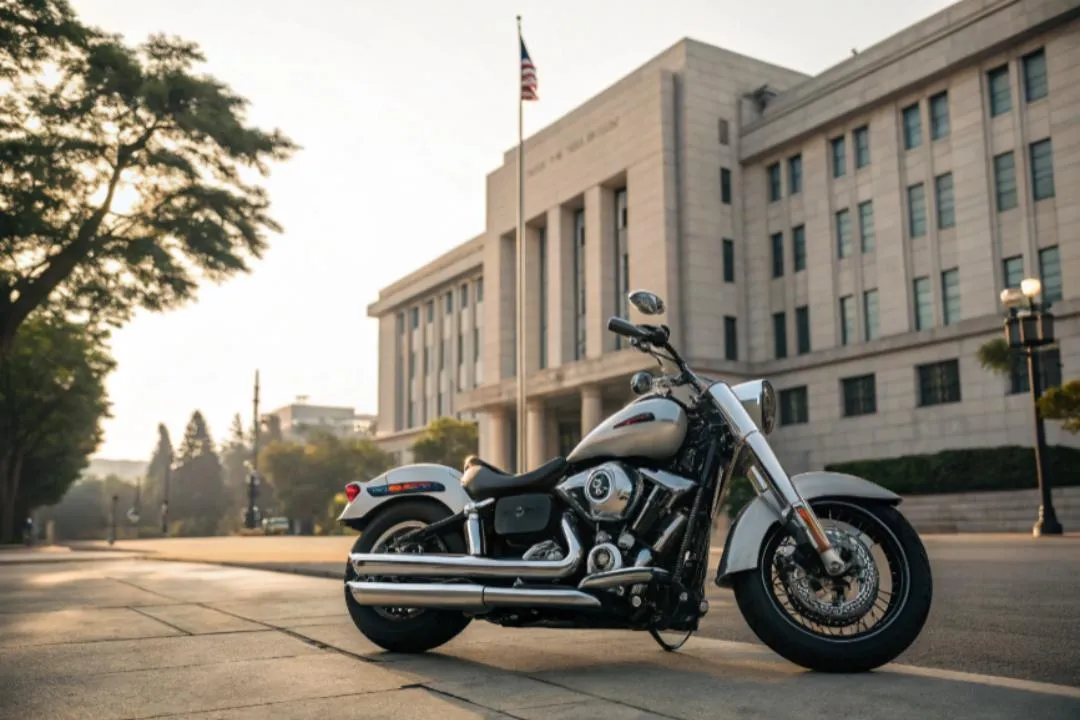
How to Transfer a Motorcycle Title Legally in the U.S
The process of transferring a motorcycle title can often feel like navigating a labyrinth of confusing state laws, endless paperwork, and unexpected costs. Whether you are selling a used bike, gifting a vintage model to a family member, or registering a non-operational motorcycle for display, a single mistake can lead to delays, fines, or even legal liability.
Understanding the legal steps is vital to avoid insurance issues or future disputes. This guide provides a detailed roadmap for title transfer, covering everything from standard sales to collector bikes and unique scenarios like non-running vehicles. By exploring state-specific rules and cost-saving strategies, you will gain the knowledge needed to navigate the DMV process with confidence.
What Is a Motorcycle Title Transfer and Why Is It Crucial?
A certificate of title serves as the legal "birth certificate" and proof of ownership for a motorcycle. It documents critical details such as the Vehicle Identification Number (VIN), odometer reading, and any lienholder information.
A title transfer is the process of updating these records with the DMV when a bike changes hands. This ensures the new owner is recognized legally. Without a proper transfer, the seller could remain liable for accidents or fines incurred by the new owner. If you are new to this process, it is helpful to review a comprehensive motorcycle title transfer guide to understand every legal nuance before you begin.
When Is a Motorcycle Title Transfer Actually Required?
Title transfers are necessary in a variety of scenarios to keep DMV records current and protect all parties involved. Below are the primary situations where you must initiate a transfer:
Sales: When selling a motorcycle, the seller must transfer the title to sever legal responsibility.
Purchasing: Buying a second-hand bike requires the buyer to initiate a transfer to establish ownership.
Gifting: Even within a family, you must update the title to reflect the new owner.
Inheritance: If an owner passes away, the executor must transfer the title to the beneficiary.
Payoff: Once a loan is paid, you must remove the lienholder from the title.
What Are the Steps to Transfer a Motorcycle Title?

Completing a title application involves a clear sequence of steps. While requirements vary by state, this general workflow will help you prepare.
1. Gather Required Documents
Begin by collecting essential paperwork. This typically includes the current title, a bill of sale, VIN verification, and proof of insurance. If you want to ensure you don't get turned away at the DMV window, you should print out our motorcycle registration checklist and mark off every item before you leave the house.
2. Complete the Title Transfer Section
Locate the “assignment of title” section on the back of the title document.
Seller: Records the odometer reading, signs the document, and dates it.
Buyer: Signs to accept the title.
Notary: In states like Nevada or Ohio, signatures must be notarized.
3. Submit Paperwork and Pay Fees
Submit the signed title, application form, and bill of sale to the DMV. Registration costs vary wildly depending on where you live. Before you head to the office, check our breakdown of motorcycle registration fees USA by state so you can budget for the exact amount.
What If You Don't Have the Title?
One of the most stressful situations for a rider is trying to buy or sell a bike when the physical title is missing. Perhaps it was lost by the previous owner, or you are buying a "barn find."
If the title is lost, you generally need to apply for a duplicate through the DMV, which may require a VIN inspection. However, if the previous owner is unreachable, the process gets harder. You can learn exactly how to handle this difficult scenario in our guide on how to register a motorcycle without a title in the USA.
How Do You Handle Non-Operational and Collector Bikes?
Not every motorcycle is meant for the daily commute. Different rules apply to bikes that are being restored or are purely for show.
Non-Operational Status
Many states offer a Planned Non-Operation (PNO) status. This allows you to keep legal ownership without paying for road-use registration or insurance. This is ideal if you are restoring a classic bike.
Collector Registration
Vintage bikes often qualify for special registration. States like Ohio allow limited road use for bikes over 25 years old with reduced fees. However, paperwork for vintage bikes can be tricky. If you are dealing with an older bike that has lost its paperwork, you might need to use a specialized service to recover a motorcycle title effectively.
What Are the Most Common Mistakes to Avoid?

Even a small typo can cause your application to be rejected. Watch out for these common errors:
Missing Signatures: Both buyer and seller must sign.
Whiteout: Never use correction fluid on a title; it voids the document.
Lien Issues: You cannot transfer a title if the bank still technically owns it. If you suspect a hidden debt on a used bike, you should read about hidden liens on a car title, as the same risks apply to motorcycles.
Skipping the Release of Liability: Always file this form immediately after selling.
Your Reliable Partner For Transfer a Motorcycle Title Legally in the U.S
Street Legal Hookup brings years of expertise to motorcycle titling, helping many riders navigate complex DMV processes annually. Our team specializes in unique cases, from non-operational bikes to collector registrations, ensuring compliance with state and federal regulations.
We have successfully helped clients streamline registration using Montana’s flat-fee framework. A collector in Arizona, for instance, titled a vintage Harley in five days, bypassing inspections and complex local paperwork.
Our secure online platform allows seamless document uploads and real-time tracking. Unlike traditional DMV visits, our service eliminates wait times and surprise fees. If you are looking for a smarter way to handle your paperwork, see why so many enthusiasts are choosing Montana registration to save money and simplify the process.
Frequently Asked Questions
How much does it cost to transfer a motorcycle title?
Costs range from $10 to $100 for DMV fees, depending on the state. However, many states also charge sales tax (up to 7% or more) on the value of the bike. For a detailed look at tax implications, you can explore the state tax data.
Do I need insurance before transferring a title?
Yes, most states require proof of insurance to complete a transfer. You must contact your insurer to add the motorcycle’s VIN to your policy before you arrive at the DMV.
Can I sell a motorcycle without a title?
Selling without a title is challenging and illegal in some contexts. You usually need to obtain a duplicate title first. In some cases, you may need a surety bond. You can learn more about surety bonds at Investopedia's Surety Bond definition.
What is needed for a title transfer in California?
California requires the signed title, bill of sale, a smog certificate (for certain newer bikes), VIN verification, and payment of use tax.
How do I remove a lienholder from the title?
You must pay off the loan and receive a "Lien Release" letter from the lender. You submit this letter along with the title to the DMV to have a new, clean title issued in your name.
Final Thoughts on Legally Transferring Your Title
Transferring a motorcycle title is a critical step for legal compliance, whether you are selling, gifting, or registering a collector bike. Navigating DMV paperwork, state-specific rules, and potential taxes can be time-consuming, but understanding the process empowers you to act confidently.
Street Legal Hookup’s expertise and online platform make titling faster and more affordable, saving you time and money. Don't let paperwork keep you off the road start your title transfer today to ensure a smooth, compliant process.



